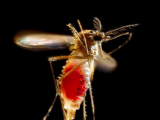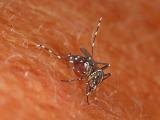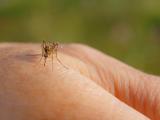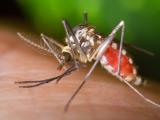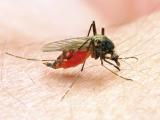Jul 21, 2005 (CIDRAP News) Federal officials say a new West Nile virus (WNV) vaccine for horses, licensed this week, represents a breakthrough that may lead to important benefits for human vaccine development.
The Centers for Disease Control and Prevention (CDC) said the vaccine is the world's first licensed DNA vaccineone that uses small pieces of the target virus's genetic material instead of using a weakened or killed form of the whole virus.
The US Department of Agriculture (USDA) said it issued a license for the vaccine to Fort Dodge Laboratories, Fort Dodge, Iowa. The CDC helped the company develop the vaccine.
"This is truly an exciting innovation and an incredible scientific breakthrough that has potential benefits far beyond preventing West Nile virus in horses," CDC Director Dr. Julie Gerberding said in a news release. "This science will allow for the development of safer and more effective human and animal vaccines more quickly."
The way the USDA explained it, "Traditional vaccine development involves either passing a disease-producing virus through a different species or cell type until it no longer causes disease but does create immunity, or by killing the virus in such a manner that allows it to produce immunity but no disease in the recipient. DNA vaccines, by contrast, use specific fragments of a pathogen's unique genetic material to stimulate a targeted immune response from the host."
The CDC said DNA vaccines offer important advantages over traditional vaccines:
- Once a vaccine model for an organism is developed, it can be adapted fairly quickly for similar organisms, which can be a major advantage in an emerging epidemic.
- DNA vaccines are less vulnerable to changes in temperature, a major asset for vaccination campaigns in developing countries.
In addition, horses that have received a DNA vaccine can be distinguished from those that have been naturally infected, which is helpful for disease surveillance, the CDC said.
Work on the new vaccine began about 5 years ago at the CDC's branch in Fort Collins, Colo. In clinical studies, the vaccine protected horses from WNV-related illness without causing any major side effects. The USDA's Center for Veterinary Biologics determined that the vaccine's safety and efficacy have been satisfactorily demonstrated.
Fort Dodge expects to make the vaccine commercially available to veterinarians early in 2006, the CDC reported. The USDA said researchers are continuing to assess how long the protection afforded by the vaccine lasts.
The DNA technology used to develop the vaccine is serving as the foundation for an experimental human WNV vaccine, the CDC said. The National Institute of Allergy and Infectious Disease (NIAID) announced the launch of a small clinical trial of the vaccine in April of this year. The NIAID is developing the vaccine in collaboration with Vical Inc. of San Diego.
More than 22,600 cases of WNV in horses were reported between 1999, when the virus first surfaced in North America, and the end of 2004, the USDA said. About a third of horses that fall ill with the mosquito-borne virus die or must be euthanized.
Two other WNV vaccines for horses are licensed and commercially available now, according to the Center for Equine Health at the University of California, Davis. Fort Dodge Animal Health makes an inactivated (killed virus) vaccine, while Merial makes a live vaccine based on a canarypox virus.
See also:
USDA announcement
http://www.aphis.usda.gov/lpa/news/2005/07/wnvdna_vs.html
CDC news release
http://www.cdc.gov/media/pressrel/r050718.htm
Apr 20 CIDRAP News story on human trial of WNV DNA vaccine
http://www.cidrap.umn.edu/cidrap/content/other/wnv/news/april2005westnile.html
